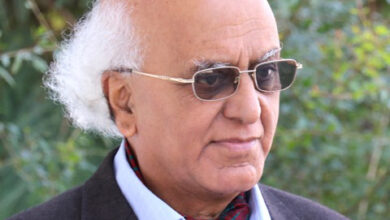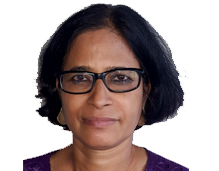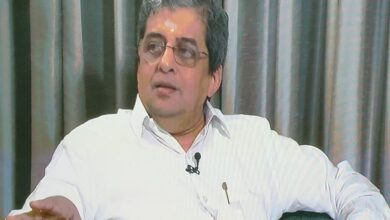Generational change in Nepali politics

By Abhi Subedi
Generational change has hardly been a subject of wide discussions in Nepal. People have always believed in the hierarchical and vertical structure of society. A unique structure based on the power of the upper echelons of the traditional elite has shaped the psyche of the general public. Such a psyche either discourages questioning or imparts a sense of complacency as the guiding factor.
Being a literary writer, I always looked for expressions of generational change in poetry. Siddhicharan Shrestha (1912-92), also called Yug Kavi or “poet of the times”, has written moving poems about generational change based on his personal feelings.
When he turned 36, he felt he was crossing a very important liminal line in his life. And he wrote, “Oh, I am surprised/ how I turned 36 today. / It hurts me to feel that/ I’m hurled into this distance/ without doing any meaningful work”. My translation: That sense of ageing felt by a man of 36 was a very private experience.

This poem must have been written in 1948, two years before Nepal overthrew the oligarchic Rana rule. A youth or an elderly person had his or her own rhythms in a traditional society. People of the younger generation did not question their elders.
The political leaders who led the freedom movement were also about the same age as the poet Siddhicharan Shrestha. While working on the first diary of that period of BP Koirala (1914-82), I came across an expression in which he realises in the same manner as poet Shrestha: ”Since some time I have been feeling that I am growing old as if I stepped into middle age from youth.
This is a melancholy feeling and a giver of birth of old age.” (May 1, 1952). He was 38 years old when he had this realisation. The sense of generational change did not haunt the youths in politics at that time. Curiously, a politician and literary writer considered himself an old person.
The politicians of that period, like BP Koirala, Ganesh Man Singh, Manmohan Adhikari, Krishna Prasad Bhattarai and Pushpa Lal, continued to lead their political parties. But things changed when the leaders of the selfsame generation became old. An ailing and old Girija Koirala was in the leadership role until the last moment of his life. Ganesh Man Singh, however, gave up his leadership role without making sure who would succeed him. He expressed dismay over some younger leaders deviating from the path. I heard him saying so and bursting into tears one evening at a gathering of poets at poet Kedarman Vyathit’s house.
Generational change in Nepali politics has come to a difficult pass because holding on to power has become a very attractive option for the political leaders. Leadership is believed to involve both access to finance and commanding authority.
Philosopher Bertrand Russell calls it lust for power; leaders exhibit the lure by clinging to the leadership role. In both democratic and autocratic countries, leaders have given continuity to their leadership either through the ballot or the bullet. In Nepal’s case, it would be wrong to draw such conclusions. But what can be said with all certainty is that not relinquishing the party leadership is guided by a desire to remain in power.
Consternation rather than healthy debate tends to shape the character of Nepali politics. We must consider another feature of Nepali political
parties: They have embraced almost all the famous and established political and ideological theories of action and behaviour.
That mainly includes Marxism, socialism, social democracy and the indigenous practice of politics known under different names. Though it is not easy to say whether those theories were correct or not, or more importantly, whether those theories guided their working style or not, we can attempt to understand them. The last decade was an important turning point in Nepali political debate.
Such an assessment did not come smoothly. It came as a result of changes, some of which were very challenging. The Marxist parties experienced the jolts of such changes more than the others, among whom the oldest party, the Nepali Congress, did not have to face the challenge of radically reviewing its political stand. The communists felt the jolts of history more than the others.
Their challenges ranged from redefining the established political principles based on Marxism to adapting to the new modes, methods and principles of operation as enshrined in the constitution. The story of the Maoists is the most eloquent in terms of political discussions, reports and reviews. The communist parties are generally fighting different battles for their identities at different moments of change.
The dominant practice among them appears to be breaking and coming together. It is difficult to know what shapes “the political unconscious”, to use the expression of American Marxist literary critic Fredric Jameson, in such political practices. The theme of interest here is, however, the psyche of generational change that dominates discussions among the Nepali political leadership today.
The generational discussion has become a pronounced theme these days. A tacit and sometimes clearly articulated consensus has emerged among the political leaders of the younger generation: They should take the reins of leadership from the septuagenarian leaders in a decent, but effective manner. Though, as said by Gideon Rachman in his latest book The Age of the Strongman (2020), authoritarian leaders have become a central issue in global politics, we need not worry about that in Nepal. The solution is simple: Hand over leadership to the new generation.




